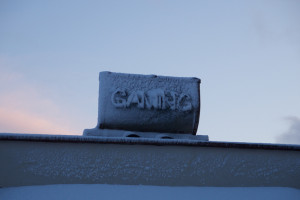Making Pokie Trusts More Accountable to Their Communities

Photo: James H. Putting the freeze on problem gambling
Gambling is one of those the many pressures and issues the people face that NZCCSS member agencies work beside. We are regularly receiving reports from around the country about the hardships that are compounded by addictive pokie machine gambling.
The latest gambling legislation, Gambling Amendment Bill (No.3), is being considered by the Government Administration Select Committee and aims to further control pokie machine (Class 4) gambling. The Bill is follow up to the consultation process on gambling regulations that took place in 2013 and NZCCSS submitted detailed comments into that process. So we looked at this new Bill to see if our concerns have been taken account of and are reflected in the proposed legislation.
Will this help reduce gambling harm?
Gambling does a great deal of harm in our communities and it affects every walk of life, but its effects impact unequally:
- 56% of all gambling losses occur in the most deprived communities
- Up to 60,000 problem gamblers and tens of thousands of other family, whānau and friends are impacted
- Pokie machine gambling is highly addictive and a huge proportion of pokie users are already or are at risk of becoming problem gamblers. This is a dangerous stuff we are seeking to regulate here.
- There is continued concern that the proceeds of gambling still are not being directed sufficiently to the places where the harm is being done.
While the Bill is not specifically focused on gambling harm reduction, it would be a tragedy if measures in this Bill did open up possibilities that could lead to further harm.
Mystery Shoppers Shows Need to Tight Regulation
The Department of Internal Affairs reported in December 2014 on its “mystery shopper” visits to pokie venues. Almost all of them did little or nothing to intervene in obvious problem gambling behaviour. That suggests a sector that is not yet ready for a “lighter hand of regulation” and as a result NZCCSS opposes the proposal to allow venues longer license periods of up to 3 years.
In addition, the proposal to allow venues to be paid on a commission basis based on turnover is concerning. Any incentive that pays a venue based on turnover immediately runs the risk of providing an incentive for that venue to increase turnover through gambling. The runs directly against the intention of the Gambling Act which is to reduce harm.
Transparency from Pokie Trusts about who decides and who gets what
NZCCSS supports the measures in the Bill that require more detailed reporting by pokie trusts. The intention is to standardise the info and make it more comparable and more widely available. Community agencies are caught between a rock and a hard place – because there are so few alternatives to pokie money, many groups that would gladly go elsewhere need to seek funding from such trusts. So it is important that this money is used to benefit those most affected.
NZCCSS suggested more clarity in the Bill to ensure that pokie trusts really do get the information out into the communities their are working with. Web-based reporting is important and necessary but the digital divide in our country means that the poorest communities most affected by gambling have the lowest access to online media. Therefore, using free local papers to publish who they gave grants to and who was turned down, as well as information about how much money was lost on pokies in that community and how much money returned in grants might help achieve this.
Oral submissions are still being heard by the Select Committee, so find out more about the Bill at the Action Station website or Problem Gambling Foundation.
Read our full submission online [wpfilebase tag=file id=1283 /]
